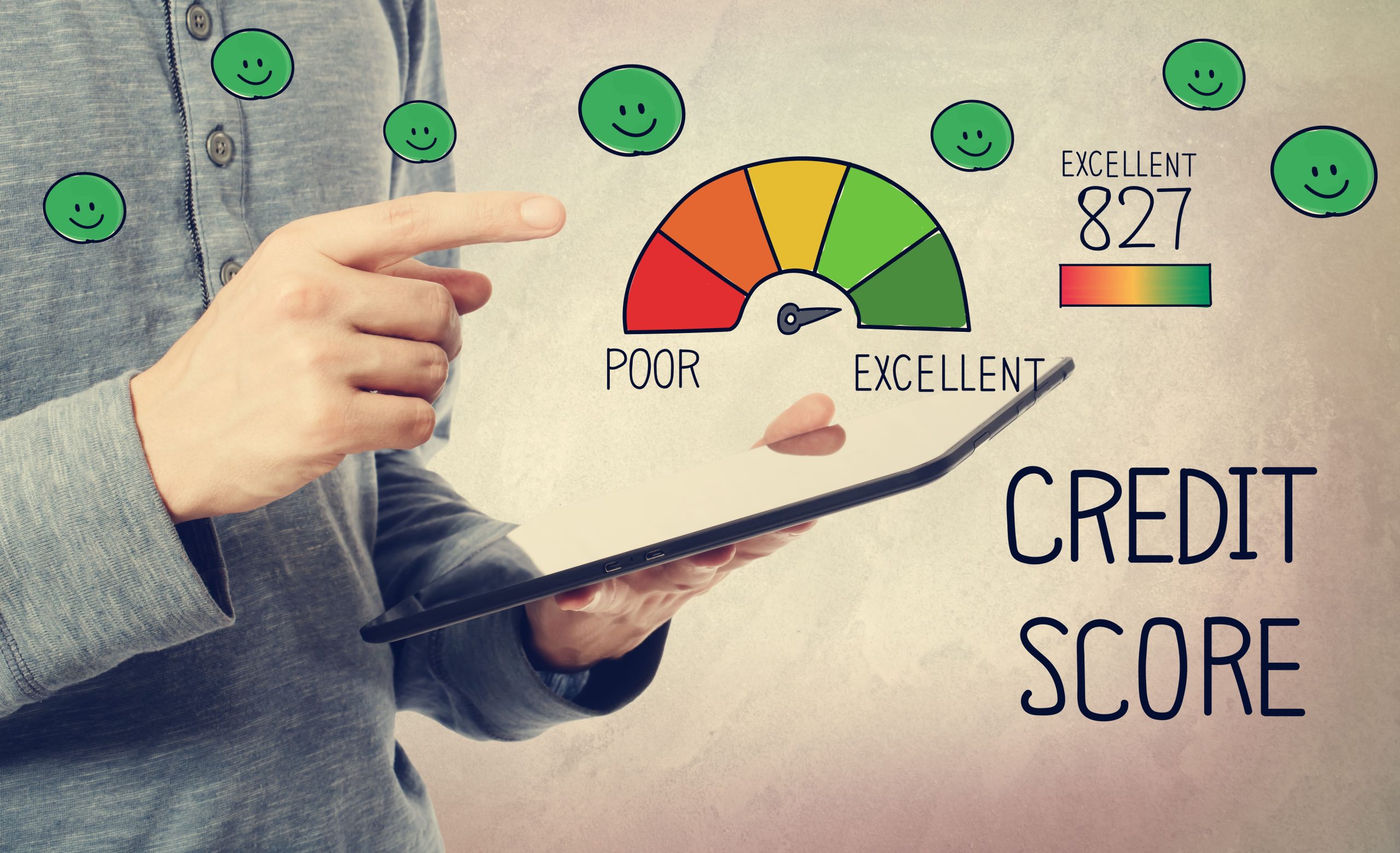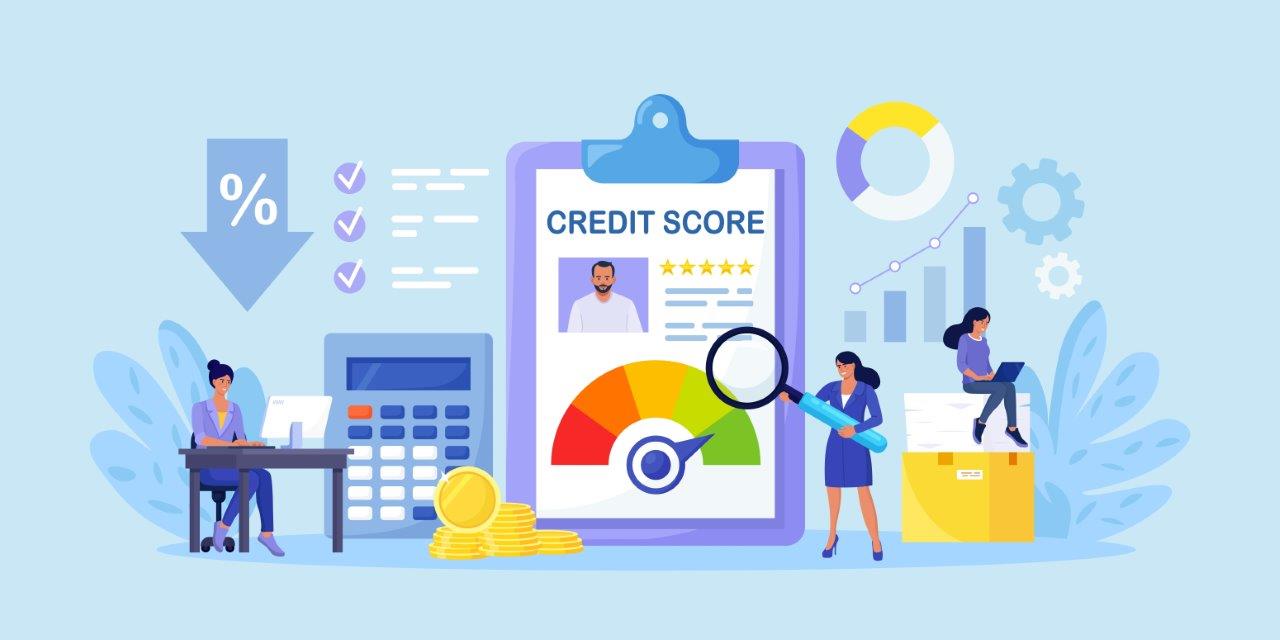ABCs of Credit Scores: The Comprehensive Guide to Financial Well-Being

How was your experience when you, for the very first time, applied for a loan? Was it approved in one go offering the best interest rates or even you got to hear that your loan cannot be approved or will have to pay high-interest rates because of a low credit score? You are not alone if you have heard any of these statements from the bank. Most of us, even if we are not first-time loan borrowers, face challenges in getting the loan sanctioned, and the most common reason is a low credit score. Ever wondered why the credit score so wildly impacts your financial decisions? And why this three-digit number is so important for banks and financial institutes?
What is a credit score?
A 3-digit number, ranging between 300-900, given to you by credit rating bureaus based on your past financial activities and loan repayment behavior is your credit score. The score gives the banks and financial institutes a defined clarity about your financial health and creditworthiness. The better your score, the lower your bank finds you risky and trusts your ability to repay the loan amount in time. However, the lower your credit score, the higher the banks find your profile risky and do not trust your ability to repay the loan.
Do you know how your credit score is calculated and who calculates the score? Your credit score is calculated by different credit bureaus such as CIBIL, CRIF, Equifax, and Experian, after considering your repayment history, your credit profile, credit mix, credit utilization ratio, and your length of credit history. Thus, you can say that your credit score is the symbol of your potential to pay the EMIs of the loan and credit card on time. Your score is considered a low credit score if it’s between 300-549, a medium credit score is 550-649, and 650-749 as high credit score. If your score is between 750-900, you have an excellent credit score, and banks easily trust your ability to repay the loan. And, if it exceeds 800, you are considered a responsible and financially stable person.
Why is a good credit score important?
If you are thinking that a good credit score is only important to get a loan approved, then you know only a small part of your credit score. Here is a list of reasons that spell out the broader picture of credit score and will definitely convince you to work for or maintain your good credit score:
A gateway to lower interest rates.
Your credit score is the report of how reliable you are. A lower credit score takes you to the gate of higher interest rates and a higher credit score can fetch you lower interest rates on any loan or credit card. Your higher credit score makes you fall in the low-risk category resulting in prizing you with the low-interest rates on your new loans.
Higher chance of getting loans approved.
When you apply for a loan or a new credit card, the first thing the bank, lending institute, or credit card company notices is your credit score. Among all the different criteria that matter while approving a loan, your credit score is one of the most significant ones. So, when you have a decent or an excellent score, higher than 750, the time taken for the loan to get approved becomes lesser, and the surety for the loan to get approved becomes higher.
Your credit card limit gets higher.
Since credit score is the first thing that is noticed by credit card companies, your higher score makes your profile trustworthy of returning the debited amount timely. So, when you have a high credit score, you get a higher limit on credit cards.
Car insurance rates get better.
While getting car insurance has become mandatory, car insurance companies, with your credit score, calculate potential losses and then decide your monthly premiums. Your high credit score reflects your higher level of responsibility and thus enables you to get more affordable premiums.
Negotiating power becomes higher.
Your higher credit score brings different offers to you from different lenders when you look for any loan. This gives you the control to do better negotiations with the lender and get better interest rates from them. However, when you have a poor credit score, lenders and banks may not give you any concession and you may end up paying higher interest rates.
How is your credit score counted?
Now that you know the importance of a good credit score, it is important to keep a close eye on your credit score, especially when in need of financial aid. A money lending partner or bank when evaluates your credit score for a new loan they evaluate it based on your payment history, the amount owed, length of credit history, new credit, and the types of credit in use. But you don’t have to worry about the process and categories as now calculating your credit score is no such big deal. With the various online credit bureau sites and financial marketplaces, you can simply login into one of the sites or the marketplaces’ platforms, fill in your details like name and PAN card number, and get your score on your screen in minutes.
Always remember that it is not impossible to get a credit card or loan with an average credit score, but it only results in paying a high interest rate. A credit score is built over the years with your different financial habits, so if you haven’t obtained any credit or are standing with a lower score, it’s a good time to start and build it by getting a loan or a credit card and paying all EMIs and dues on time. This will help you to take your credit score on track and have a better and more stable financial journey.
Other blogs

Features Of Kisan Credit Card
There is no if and but attached to the point that agriculture is the backbone of the Indian...

Short-Term Personal Loan Holding Your Long-Term Goals
Has it ever happened that you are at the end of your car-buying journey, suddenly your budget...

4 Reasons Why Credit Cards Are Important For Your Financial Health
Get a credit card? A financial trap. Ask your parents or grandparents and you will get to hear...

Home Loan Prepayment, A Wise Decision?
Owning our own home is a dream of every Indian. A place where everything belongs to the self, a...

How Does a Good Credit Score Affect Financial Decisions?
When it comes to applying for a credit card or a loan, each factor matters. And each factor plays a...

Why Is It Better To Take A Loan From A Bank Rather Than A Money Lender?
India is the country where most of its population depends on farming and small businesses. About...

Difference Between Your Credit Score and Credit Report
Credit score and credit report are among the most talked about topics in the world of finance and...

FinTechs Empowering Farmers: Digitizing Kisan Credit Cards and Streamlining the Loan Process
India is a country where 50% of the population is largely dependent on agriculture for their...

 English
English 


